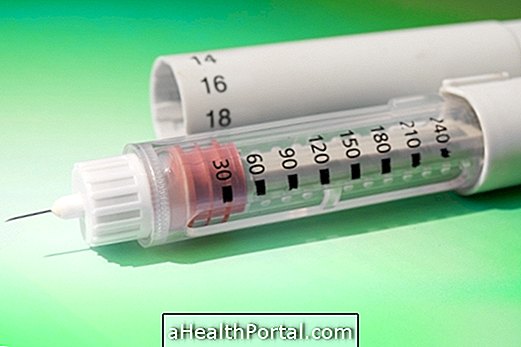Pamidronate is the active substance in an antihypercalcemic drug known commercially as Aredia.
This injectable drug is indicated for Paget's disease, osteolysis since it inhibits the bone resorption through several mechanisms, alleviating the symptoms of the diseases.
Indications of Pamidronate
Paget's bone disease; hypercalcemia (associated with neoplasia); osteolysis (induced by breast tumor or myeloma).
Price of Pamidronato
The price of the medicine was not found.
Side Effects of Pamidronate
Decreased potassium in the blood; decreased phosphate levels in the blood; skin rash; induration; pain; palpitation; swelling; inflammation of the vein; transient low fever.
In cases of Paget's disease : increased blood pressure; pain in the bones; Headache; joint pain.
In cases of osteolysis : anemia; loss of appetite; fatigue; difficulty breathing; indigestion; stomach ache; joint pain; cough; Headache.
Contraindications of Pamidronate
Pregnancy Risk C; breastfeeding: patients with allergy to bisphosphonates; Hipersensibility to any of the formula's components.
How to Use Pamidronate
Injectable Use
Adults
- Hypercalcaemia : 60 mg administered for 4 to 24 hours (marked hypercalcemia - corrected serum calcium higher than 13.5 mg / dL - may require 90 mg given within 24 hours).
- Patients with decreased renal function or mild hypercalcaemia: 60 mg administered for 4 to 24 hours.
Attention: if hypercalcemia reappears, it is possible to think of new treatment since at least 7 days have passed.
- Paget's bone disease: Total dose of 90 to 180 mg per treatment period; the total dose may be administered at 30 mg per day for 3 consecutive days or 30 mg once per week for 6 weeks. The rate of administration is always 15 mg per hour.
- Tumor-induced osteolysis (in breast cancer): 90 mg administered for 2 hours, every 3 or 4 weeks; (in the myeloma): 90 mg administered for 2 hours, 1 time per month.


















-para-que-serve-e-como--feito.jpg)